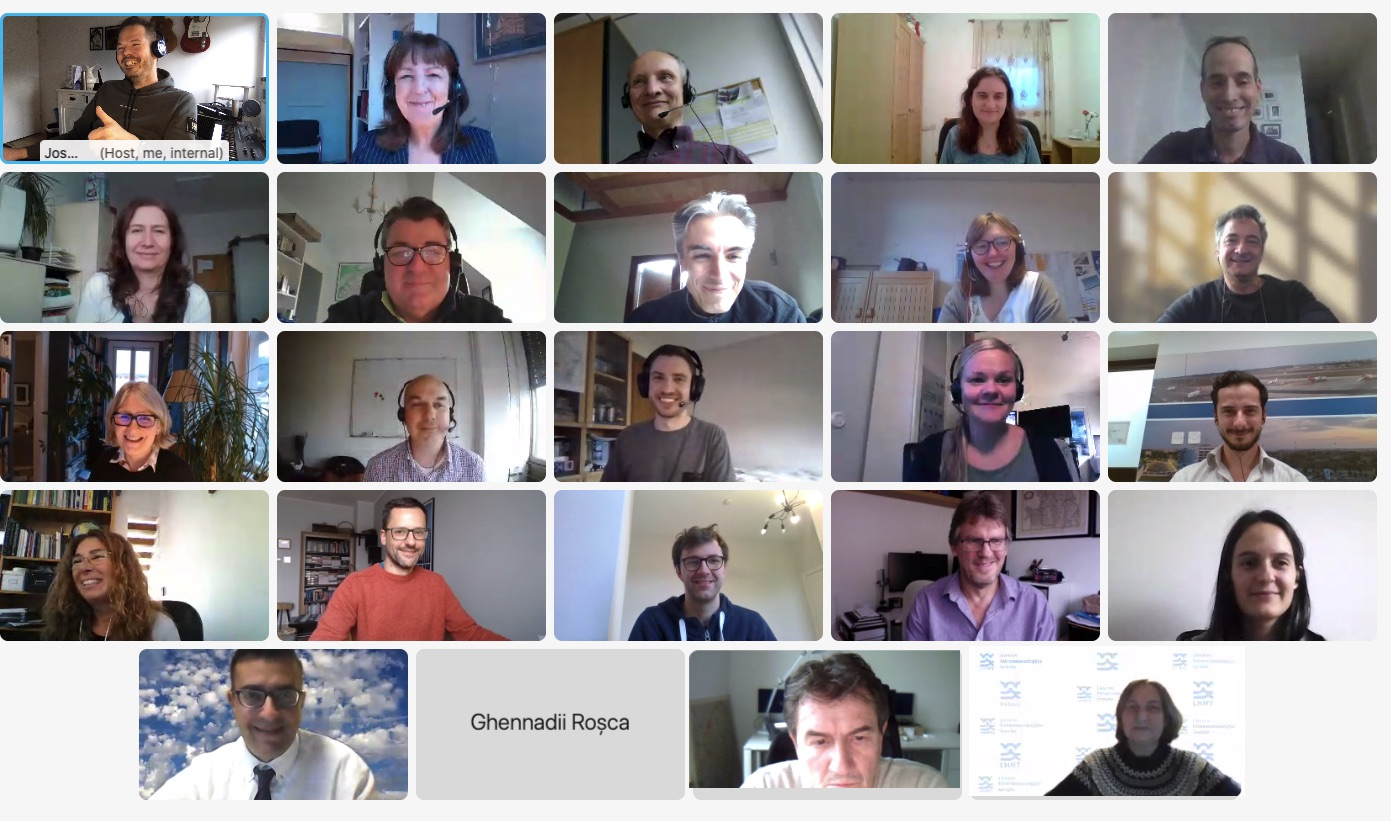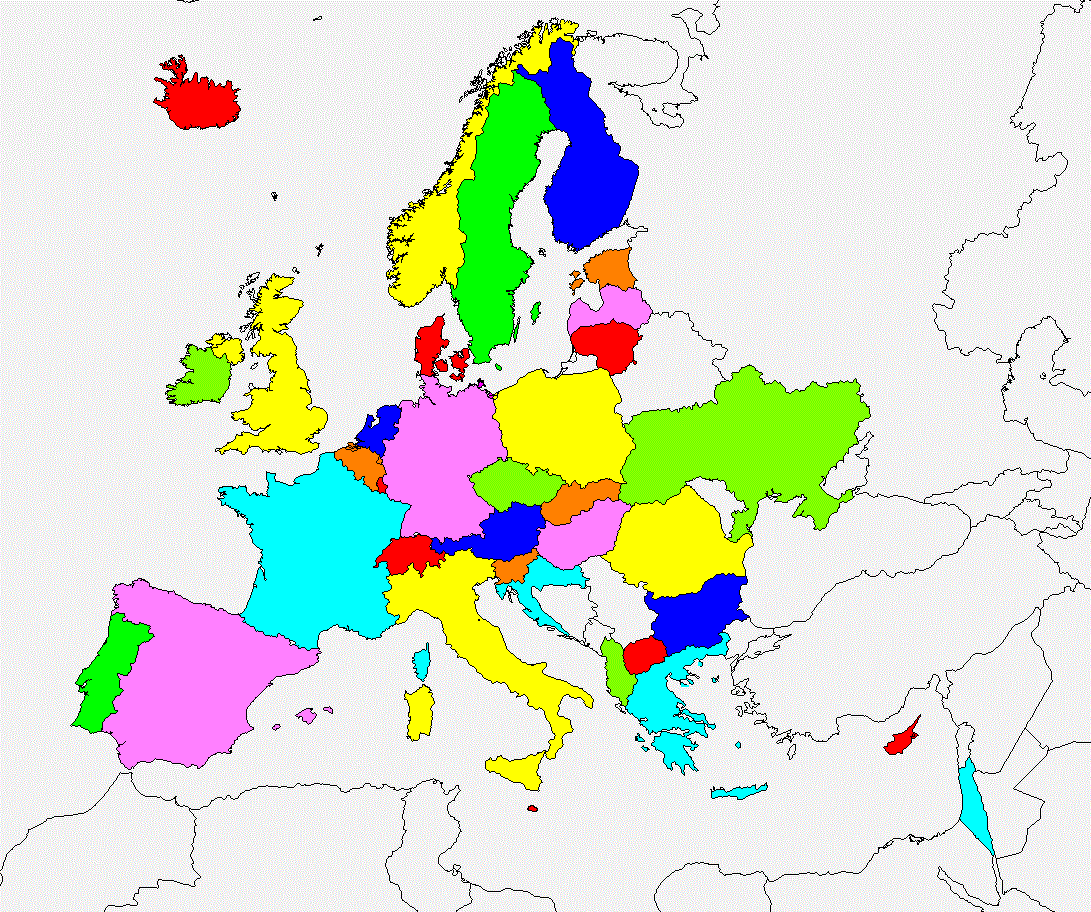Terms of References of the Working Group for Cooperation between European Forecasters (WGCEF)
Purpose:
The WGCEF should provide expertise, advice and comments as required by STAC concerning specific issues or scientific development in the field of weather forecasting and operational applications.
Organisation:
1. The WGCEF is a permanent body, established in 1995, consisting of representatives
from National Meteorological and Hydrological Services in the WMO Region VI, one
representative from ECMWF (European Centre for Medium-Range Weather
Forecasts) and one representative from EUMETNET.
2. Membership is open to all National Meteorological and Hydrological Services in the
WMO Region VI and is free of charge. Each National Meteorological and Hydrological
Service is invited to nominate a representative (and a deputy if required). One
representative from EUMETNET as well from ECMWF is joining the WGCEF. If
necessary additional experts may also be invited to attend specific meetings.
3. The Chairperson and Vice Chairperson of the Working Group are elected from its
members. The term for each of these positions is a maximum of four years.
4. The WGCEF is a Working Group of the EUMETNET Science and Technology Advisory
Committee (STAC) since 2013.
Goals:
1. To promote an integrated, consistent and collaborative approach to operational
forecasting through:
i. Encouraging and facilitating direct contact among forecasters across Europe particularly in high impact weather situations.
ii. Promoting the sharing of forecasts and warnings through services such as Meteoalarm.
iii. Encouraging the development of European forecasting capability through sharing of knowledge, experience, techniques and technology.
2. To support EUMETNET in implementing its Forecasting Programme.
3. To provide an independent forum for the discussion and exchange of ideas, best
practice and experiences within the operational forecasting community.
General Duties:
Individual WGCEF members - other than the Chair and Vice-Chair of the Working Group - have neither specific responsibilities nor any obligation to contribute to any particular activities. However, the group as a whole shall undertake the following duties when appropriate:
1. Exchange of information on working practices and techniques of the forecasting
offices of the National Meteorological and Hydrological Services.
2. Exchange of forecasting information prior to and during potentially high-impact
weather conditions.
3. Organizing a yearly meeting for WGCEF members.
4. Issuing and circulating a newsletter (The European Forecaster) once a year directed
to forecasters and researchers within National Meteorological and Hydrological
Services.
5. Maintaining the WGCEF website, www.euroforecaster.org .
6. Promotion of visits and exchange of forecasters.
7. Promotion of special conferences relevant to forecasters as part of other conferences
or as a special event.
8. Promotion of training activities and material specific for forecasters.
EUMETNET Duties:
In addition to the general duties above, the WGCEF Chair and Vice-Chair shall be responsible for coordinating the Working Group's input into the following EUMETNET activities:
1. Providing advice and comments as required by STAC concerning specific issues or
scientific development of weather forecasting, including the following areas:
nowcasting, deterministic and probabilistic short range NWP, monthly and seasonal
forecasting, warnings and impact.
2. Supporting the EUMETNET Observations, Forecasting and Climate Programmes
Management teams for an integrated and coordinated approach to specific
Programmes' issues as well as to cross-cutting ones related to weather forecasting.
This includes advice in defining a user requirement to help assess and develop the
work of the Programmes, and validation and verification of Programmes'
deliverables.
Operating Procedures for EUMETNET Activities and Meetings:
1. The WGCEF, in coordination with the Secretariat, will regularly document progress at
STAC meetings with a written report (STAC meetings will be usually twice a year in
spring and autumn). When deemed necessary the WGCEF Chair or a delegate may be
invited to give a presentation at STAC meetings.
2. The WGCEF Chair may establish subgroups, working in between meetings, to support
specific advisory functions, or may canvass opinions via email from WGCEF members.
One example for such a subgroup is the Task Team of Naming Storms in Europe that
was set up by WGCEF with strong support by EUMETNET in 2013 due to increased
use of storm names by media in cases of severe weather. This Task Team coordinates
the naming of significant storms Europe-wide, thus strengthening the collaboration
between NMSs in terms of severe weather warnings, too, following one of the main
ideas of Meteoalarm.
3. Access to relevant EUMETNET portal groups as well as access to a dedicated group is
granted to WGCEF members to facilitate coordination and exchange of information.
4. Members will carry their own cost for participation and attendance at the meetings.
Christian Csekits and Jos Diepeveen
Chairpersons of the WGCEF
History
The first ideas to enhance the cooperation between forecasters of the European NMHSs were expressed in1994. Professor Julian Hunt (the former director of the Metoffice, UK, was one of the originators). Jean Coiffier, Meteo France, was chosen to write down ideas on forecaster cooperation discussed during preparations of the 2nd ECAM in 1994.
Coiffier's letter was sent to the European NMHSs asking their intrerest in forming such a group. 21 (out of 35) services agreed.
The group started and held it's first meeting September 1995. This was in conjunction with ECAM95 in Toulouse, France. Representatives from 11 NMHSs were present.
1995 Toulouse, France, in conjunction with ECAM
1996 Bled, Slovenia, in conjunction with ICAM
1997 Lindau, Germany, in conjunction with ECAM
1998 Luxembourg
1999 Norrköping, Sweden, in conjunction with ECAM
2000 Innsbruck, Austria, in conjunction with ICAM
2001 Budapest, Hungary (September 2001) , in conjunction with ECAM
2002 Lisbon (Portugal)
2003 Rome (Italy)
2004 Madrid (Spain)
2005 De Bilt (Netherlands)
2006 Athens (Greece)
2007 El Escorial (Spain)
2008 Copenhagen (Denmark)
2009 Toulouse (France)
2010 Dublin (Ireland)
2011 Bergen (Norway)
2012 Vilnius (Lithuania)
2013 Luxembourg
2014 Geneva (Switzerland)
2015 Brussels (Belgium)
2016 Reading (UK)
2017 Warsaw (Poland)
2018 Tel Aviv (Israel)
(ECAM = European Conference on Applied Meteorology,
ICAM = International Conference on Alpine Meteorology)






